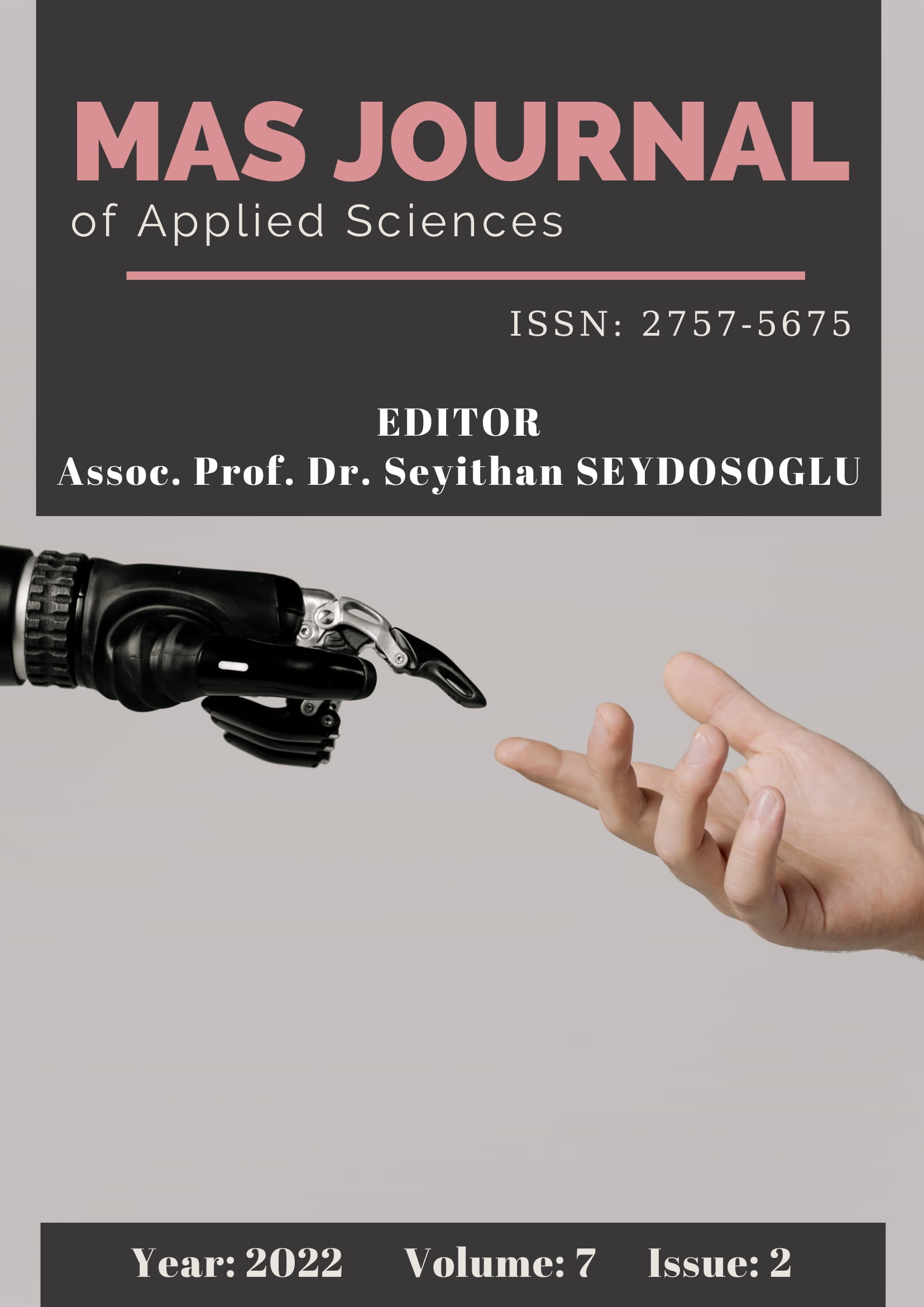Effect of Flexible Work Arrangements on Employees’ Well-being, Job Satisfaction, and Work Performance in Morocco: A Case Study
DOI:
https://doi.org/10.52520/masjaps.v7i2id190Anahtar Kelimeler:
Flexible work arrangements, wellbeing, job satisfaction, work performanceÖzet
Nowadays employees are consumed with a number of family responsibilities and other personal problems besides the demands of their workplace. In fact, most people lack the ability to efficiently manage all these things, and this leads to an unhealthy amount of stress, an imbalance between work and personal life, and a potential job dissatisfaction. This is why it is important for managers to come up with different practices to help employees find a balance, and hence increase their overall productivity and work performance. One-way managers achieve this is by including one or more types of Flexible Work Arrangements (FWAs). This study aims to look at the effects of FWAs on employees’ wellbeing, job satisfaction work performance among the employees of Pastel Agency Services, Morocco. The paper will be organized in Three different chapters. The first chapter is an introduction to the concept of FWAs and a statement of the problem, purpose, questions, hypotheses and methodology adopted in the study. The second chapter is a review of the literature. The third and final chapter presents and discusses the findings of the study.
Referanslar
Allen, T.D., Shockley, K. 2009. Flexible work arrangements: Help or hype? In D. R. Crane & E. J. Hill (Eds). Handbook of families and work: Interdisciplinary perspectives (pp. 265-284). Lanham, MD : University Press of America
Altındağ, E., Siller F. 2014. Effects of Flexible Working Method on Employee Performance: An Empirical Study in Turkey. Business and Economics Journal.
Campbell, J.P., Wiernik, B.M. 2015. The modeling and assessment of work performance. Annual Review of Organizational Psychology and Organizational Behavior, 2, 47–74.
Clarke, S., Holdsworth, L. 2017. Flexibility in the Workplace: Implications of flexible work arrangements for individuals, teams and organizations. University of Manchester. ISBN 978-1-908370-77-8 p1-2.
Grzywacz, J.G., Jones F.A., Casey P.R. 2008. Workplace flexibility: Implications for worker health and families. In D. R. Crane & E. J. Hill (Eds). Handbook of families and work: Interdisciplinary perspectives (pp. 219-240). Langhami, MD : University Press of America.
Hosboyar, M., Ensari, N., Lopez, P.D. 2018. A quasi-experimental study on flexible work arrangements. Research Journal of Business and Management (RJBM), 5(2): 153-165.
Klindzic, M., Marić, M. 2019. Flexible Work Arrangements and Organizational Performance – The Difference between Employee and Employer-Driven Practices. Journal for General Social Issues.
Krishantha, P.D.D.M. 2018. Employee wellbeing -effectiveness on motivation and organizational performance. International journal of advancements in research & technology, volume 7, issue 7, ISSN 2278-7763
Masuda, A., Allen, T., Poelmans, S., Spector P.E. 2012. Flexible Work Arrangements Availability and their Relationship with Work to‐Family Conflict, Job Satisfaction, and Turnover Intentions: A Comparison of Three Country Clusters Applied Psychology.
Mugania, A.K., Waiganjo, E.W., Kihoro, J.M. 2016. Influence of Flexible Work Arrangements on organizational performance in the banking industry in Kenya. International Journal of Academic Research in Business and Social Sciences, Vol. 6, No. 7
Possenriede, D., Plantenga, J. 2011. Access to flexible work arrangements, working-time fit and job satisfaction.Utrecht School of Economics Tjalling C. Koopmans Research Institute Discussion Paper Series 11-22.
Rawashdeh, A.M., Almasarweh, M.S., Jamel, J. 2016 Do flexible work arrangements affect job satisfaction and worklife balance in jordanian private airlines? International Journal of Information, Business and Management, Vol. 8, No.3.
Schoch, K. 2019. Case study research. In Burkholder, Gary J., Cox, K. A., Crawford, L. M. (Eds.). Research Design and Methods: An Applied Guide for the Scholar-Practitioner.(pp 245-258)
Taherdoost, H. 2016. Sampling Methods in Research Methodology; How to Choose a Sampling Technique for Research. International Journal of Academic Research in Management .Vol. 5, No. 2, Page: 18-27, ISSN: 2296-1747.
Saeed, I., Waseem, M., Sikander, S., Rizwan, M, 2014. The relationship of turnover intention with job satisfaction, job performance, leader member exchange, emotional intelligence and organizational commitment. International journal of learning and development, 4(2).
Uglanova, E., Dettmers, J. 2018 Sustained Effects of Flexible Working Time Arrangements on Subjective Well-Being. Journal of Happiness Studies.
Working Families Report 2008. Flexible working and performance. Cranfield university. https://www.workingfamilies.org.uk/wp-content/uploads/2014/09/Flexible-Working-Performance-2008.pdf
Workplace flexibility 2010 (2006), Flexible Work Arrangements: A Definition and Examples. Georgetown University Law Center. Retrieved from http://scholarship.law.georgetown.edu/legal/10
İndir
Yayınlanmış
Nasıl Atıf Yapılır
Sayı
Bölüm
Lisans
Telif Hakkı (c) 2022 Yayımlanan makalenin telif hakları yazarına aittir.

Bu çalışma Creative Commons Attribution-NonCommercial 4.0 International License ile lisanslanmıştır.


